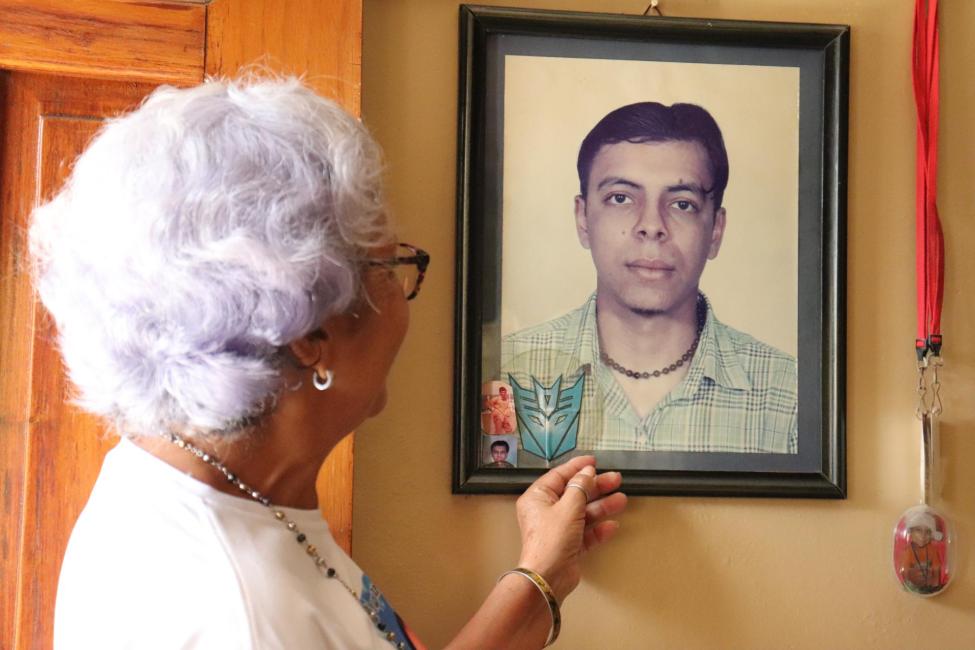-
Who we are
WHO WE AREThe International Organization for Migration (IOM) is part of the United Nations System as the leading inter-governmental organization promoting since 1951 humane and orderly migration for the benefit of all, with 175 member states and a presence in 171 countries.
-
Our Work
Our WorkAs the leading inter-governmental organization promoting since 1951 humane and orderly migration, IOM plays a key role to support the achievement of the 2030 Agenda through different areas of intervention that connect both humanitarian assistance and sustainable development.
What We Do
What We Do
Partnerships
Partnerships
- Where we work
-
Take Action
Take Action
Work with us
Work with us
Get involved
Get involved
- Data and Research
- 2030 Agenda
New Network on Missing Migrants in the Americas Aims to Drive Action to Save Migrant Lives
Geneva/San Jose – Thousands of people are dying crossing deserts, rivers and remote areas in the Americas; the International Organization for Migration’s (IOM) Missing Migrants Project documented 1,433 deaths in 2022, the highest number since the project began in 2014.
In an effort to save lives, improve data collection and support the families of survivors, IOM’s Global Data Institute (GDI), which oversees the Missing Migrants Project, in partnership with key stakeholders, this week is launching the first Network on Missing Migrants in the Americas to strengthen regional knowledge and capabilities to address the increasing trend of migrant deaths and disappearances.
“When people have access to safe and regular migration pathways, that increases the likelihood that they can contribute to economic prosperity at home and in their places of destination,” said GDI Director Koko Warner. “Lack of such regular pathways often has tragic results and is a lost opportunity.”
“The objective of this network is to create a knowledge and work community that shares updated and reliable data on missing migrants to contribute to evidence-based policy.”
The network links civil society organizations, government institutions, journalists, and other key actors. Today’s first session (29 March) will focus on the challenges that families from Central America face in the search for their missing loved ones. The encounter will also provide an opportunity for participants to discuss the role of the network in influencing the public and political agenda.
The exact number of those who die transiting through this region is unknown, but records compiled by the Missing Migrants Project indicate that between 2014 and 2022, at least 7,495 people lost their lives in the region.
The network also aims to strengthen national and regional capacities for the collection and exchange of data on deaths and disappearances of migrants. It seeks to issue recommendations to prevent them, search for and identify the deceased, and provide support and reparation to their families. It will also facilitate the creation of strategic alliances among the participants by conducting joint investigations and other initiatives.
The network consists of participants in ‘Virtual Cafés’, a Missing Migrants Project initiative established in 2020. To date, the Cafés remain the only space in the Americas where representatives of civil society organizations, journalists, artists, researchers, and representatives of governmental and intergovernmental institutions have met specifically to discuss issues related to migrant deaths and disappearances.
The Missing Migrants Project invites interested organizations and individuals to participate in this initiative and to join efforts to address the challenges facing migrants in the Americas.
***
Click here to watch the livestreamed session.
For more information, please contact:
At IOM GMDAC:
Jorge Galindo, Tel: +4915226216775, Email: jgalindo@iom.int
At IOM HQ:
Diego Pérez Damasco, Tel: +41795827235, Email: diperez@iom.int
